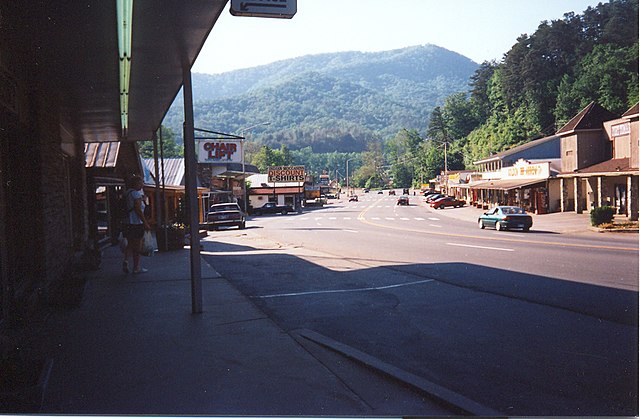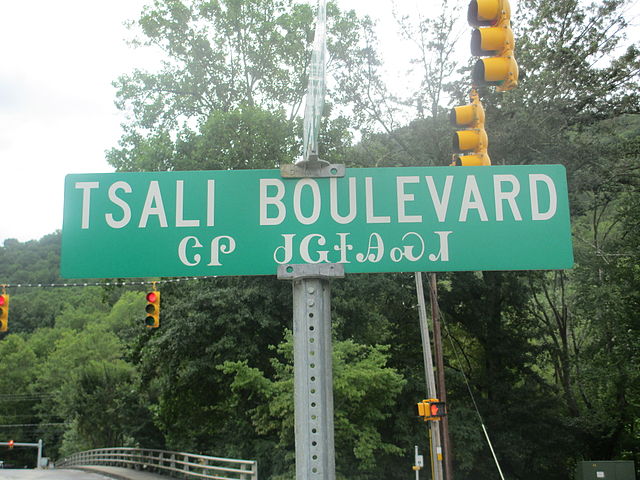Cherokee is a census-designated place (CDP) in Swain and Jackson counties in Western North Carolina, United States, within the Qualla Boundary land trust. Cherokee is located in the Oconaluftee River Valley around the intersection of U.S. Routes 19 and 441. As of the 2020 census, the CDP had a population of 2,195. It is the capital of the federally recognized Eastern Band of Cherokee Indians, one of three recognized Cherokee tribes and the only one in North Carolina.
Tsalagi Road
Mingo Falls near Cherokee drops about 120 feet (37 m) during moderately dry weather.
Walking bridge over the Oconaluftee River in Cherokee
Cherokee Central Schools using Cherokee syllabary
Cherokee or Tsalagi is an endangered-to-moribund Iroquoian language and the native language of the Cherokee people. Ethnologue states that there were 1,520 Cherokee speakers out of 376,000 Cherokees in 2018, while a tally by the three Cherokee tribes in 2019 recorded about 2,100 speakers. The number of speakers is in decline. The Tahlequah Daily Press reported in 2019 that most speakers are elderly, about eight fluent speakers die each month, and that only 5 people under the age of 50 are fluent. The dialect of Cherokee in Oklahoma is "definitely endangered", and the one in North Carolina is "severely endangered" according to UNESCO. The Lower dialect, formerly spoken on the South Carolina–Georgia border, has been extinct since about 1900. The dire situation regarding the future of the two remaining dialects prompted the Tri-Council of Cherokee tribes to declare a state of emergency in June 2019, with a call to enhance revitalization efforts.
Bible cover in Cherokee script
Translation of Genesis into the Cherokee language, 1856
A sign in Tahlequah, Oklahoma in English and Cherokee (transcription: ᏓᎵᏊ ᎪᏪᎵ ᏧᏂᏍᏚᎢᏍᏗ – "daliquu goweli tsunisduisdi")
Tsali Boulevard (transcription: ᏣᎵ ᏧᏩᏐᎯᏍᏗ – "tsali tsuwasohisdi") in Cherokee, North Carolina








